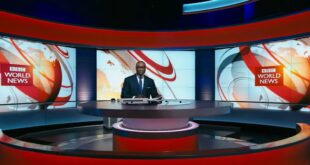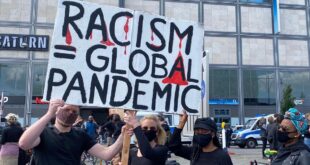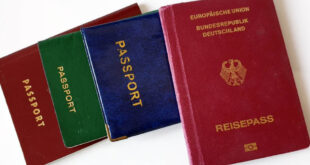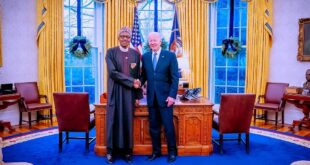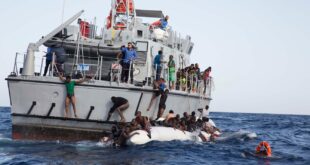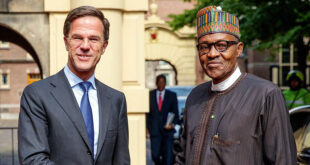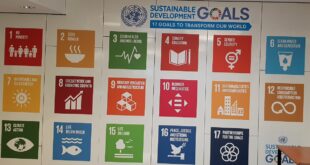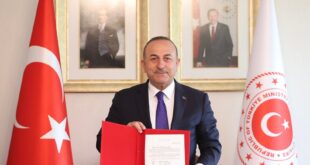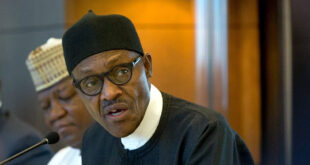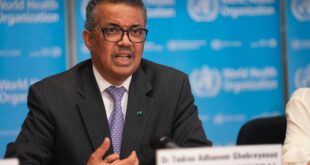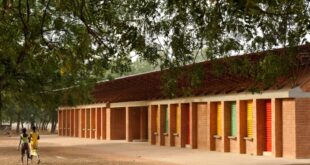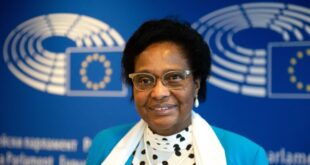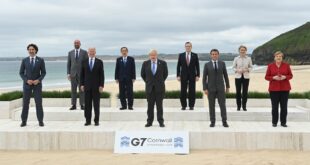Most migrants risking their lives to cross the Mediterranean to Italy come from Nigeria. EU policy makers have been looking for ways to put a stop to this, but is pumping money into Africa really the solution? Chloe Lyneham reports.
For the last eight years, the Islamic terrorist group, Boko Haram, has been tearing northeastern Nigeria apart. The UN estimates that over 20,000 people have been killed and around 1.7 million displaced since 2009.
Earlier this year, a UNICEF report outlined Boko Haram’s increasing use of children, mostly girls under the age of 15, as suicide bombers. In 2017, this number has quadrupled, with 83 children used as “human bombs.”
The violence has spread to neighbouring countries around the Lake Chad basin, including Chad, Niger and northern Cameroon. The International Organization for Migration (IOM) has described the situation as having caused “mass displacement and at the same time restricted movement, inhibited farming activities, disrupting food supplies and hindering access to basic services.” In July 2017, it was estimated that 8.2 million people were in need of humanitarian assistance.

Old wounds reopened
And with this devastating situation in the north continuing, Nigeria is now facing further problems in the southeast of the country. There have been increasing skirmishes between the Nigerian army and the separatist movement, Indigenous People of Biafra (IPOB). Last Friday, the Nigerian military declared IPOB to be a terrorist organization, amid claims that Nigerian soldiers have engaged in extrajudicial killings of hundreds of Biafran supporters.
Former Nigerian president, Olusegun Obasanjo, has called on President Muhammadu Buhari to open a dialogue with IPOB leader, Nnamdi Kanu.
“The heavy boot is not the solution. I believe also whatever may be the frustration of any youth in any part of Nigeria; I believe secession is not the solution,” Obasanjo told Nigeria’s online newspaper Premium Times.
“We need to satisfy the youth in job creation, in wealth creation, in giving them a better, fulfilled life, in giving hope for the future. There’s no easy way out.”
Economic migrants
Despite these catastrophic conditions, the German government does not consider Nigeria to be a war-ravaged country. As a result, many Nigerians who have applied for asylum in Germany do not meet the criteria for being offered protection under international law. The strict criteria are aimed at people fleeing war or persecution, not those fleeing poverty.
Dr Ralf Sanftenberg, Global Head of Programs, Migration and Development at the Center for International Migration and Development, said during a visit to Nigeria in February that over 12,000 Nigerian asylum seekers would likely be deported from Germany in 2018. He emphasized that 99 per cent of Nigerian asylum seekers in Germany would have their applications denied. (https://www.theafricancourier.de/news/12000-nigerians-in-germany-to-be-deported/)
The German government, in co-operation with the IOM, runs a scheme that provides financial assistance to asylum seekers who voluntarily return to their home countries or migrate to a third country. It has also set up services within Nigeria to provide business training to returning migrants.
Aid to build a better future
Job and wealth creation for poor African states is a popular theme among European policy makers. In August, seven African and European leaders met in Paris to discuss ways to cut migration to Europe from Africa in exchange for financial aid. Chad’s president, Idriss Déby Itno, said “poverty and a lack of education” were the main reasons people were coming to Europe. “These have to be taken into account by all the European Union and African Union countries.”

At the meeting, French President Emmanuel Macron said he wanted the EU to commit another 60 million euros ($71 million) to help returning migrants and prevent continued migration. This comes after Germany released its Marshall Plan for Africa earlier in the year, an initiative aimed at bolstering private investment on the continent. The plan’s aim states, “We must move away from the concept of donor and recipient countries, and focus more on joint economic co-operation instead.”
But pumping money into Africa as a way of stemming migration flows may not be the solution. There is substantial evidence that aid can, in fact, have the opposite effect. Michael Clemens, from the Centre for Global Development, says that while development aid is a worthy policy, research has shown that aid leads to even greater migration. “Migration pressure only typically falls when [countries] grow past upper-middle-income status. In poor countries, more development means more migration, not less. Policies to foster development may thus be most effective when paired with policies to accommodate mobility.”
Clemens argues that the best way forward is to innovate. He says that what is needed are “new institutions to shape international migration in ways that are more beneficial to the countries migrants arrive in, the countries they leave, and the migrants and their families.”
He provides examples, such as better visa systems that can respond to changing developments, rather than feeding into the black market. As well, he advocates implementing bilateral agreements to link the development of certain skills with the needs of destination countries. This may be a much smarter economic way forward, with predictions showing that migration levels will not be reduced within our lifetime.
© InfoMigrant
 THE AFRICAN COURIER. Reporting Africa and its Diaspora! The African Courier is an international magazine published in Germany to report on Africa and the Diaspora African experience. The first issue of the bimonthly magazine appeared on the newsstands on 15 February 1998. The African Courier is a communication forum for European-African political, economic and cultural exchanges, and a voice for Africa in Europe.
THE AFRICAN COURIER. Reporting Africa and its Diaspora! The African Courier is an international magazine published in Germany to report on Africa and the Diaspora African experience. The first issue of the bimonthly magazine appeared on the newsstands on 15 February 1998. The African Courier is a communication forum for European-African political, economic and cultural exchanges, and a voice for Africa in Europe.


